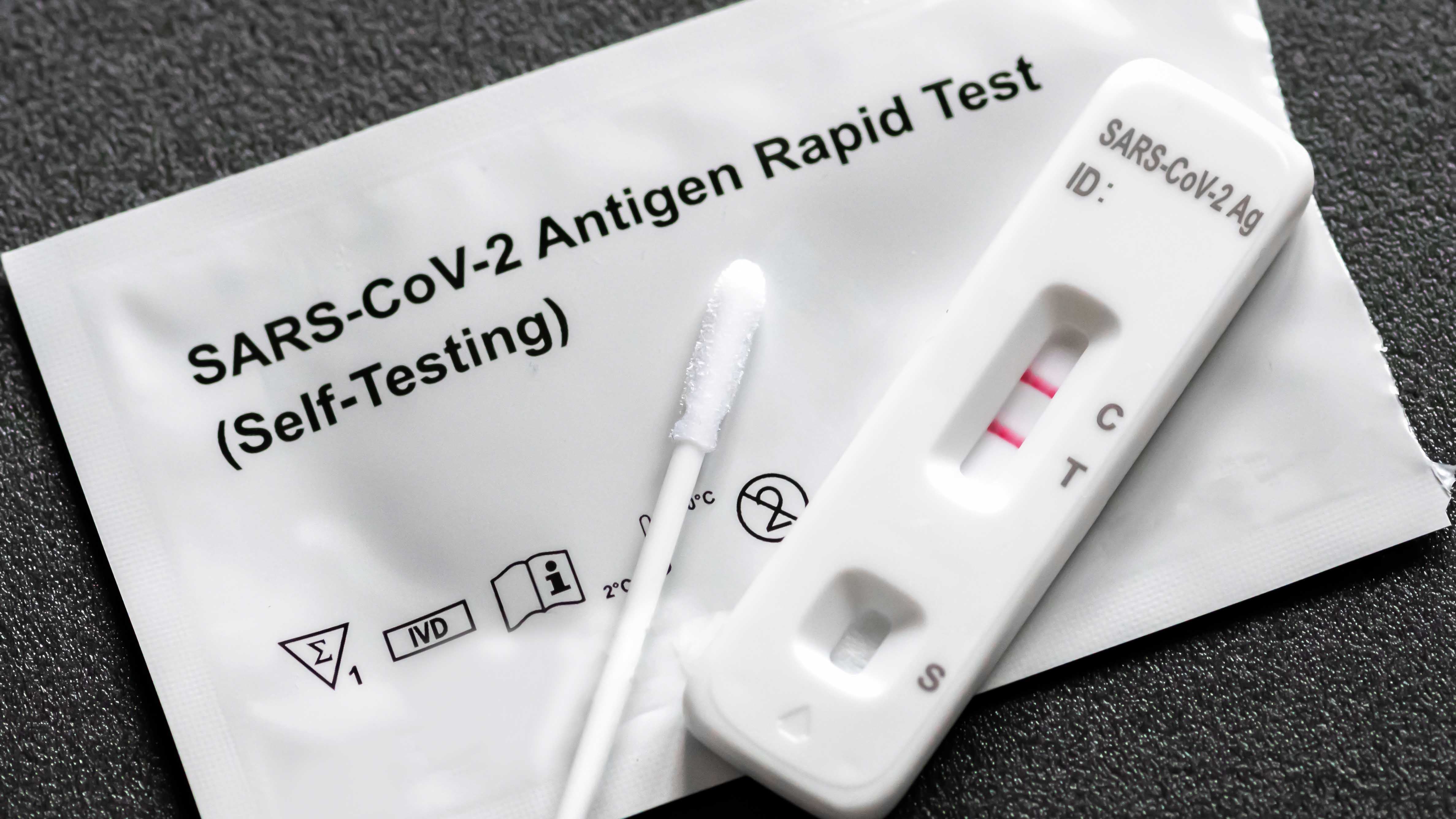Starting this fall, the state’s Department of Elementary and Secondary Education says it will suspend its COVID testing program.
Massachusetts will end its state-run school COVID-19 testing program after this school year, state officials announced, with other educational testing and isolation policy changes being put into effect this week.
Beginning in the fall of 2022, the Department of Elementary and Secondary Education says the state will stop supplying self-tests "or other COVID testing services" to schools.
"The end of the 2021-22 school year will mark the end of the state-run, state-coordinated K-12 testing program, although districts and schools will have access to state-provided self-tests to conduct symptomatic testing themselves during summer school," DESE Commissioner Jeffrey Riley said in a memo to school officials Tuesday.
For the remainder of the 2021-2022 school year, "self-tests may now also be made available for the school community more widely," the memo said, adding that they may be provided before in-person, school-sponsored events like proms and graduations.
For summer programs, "staffing, software, and all other services currently provided through CIC health will no longer be available through the state-run program," meaning school districts will need to provide staffing for in-school symptomatic testing, DESE said in the memo.
Next school year, when the state stops providing self-tests, "DESE and [the Department of Public Health] strongly recommend that schools and districts interested in implementing their own testing program limit that program to symptomatic rapid testing only," according to the memo. "Schools and districts may purchase self-tests through the statewide contract."
Additionally, the Department of Public Health has announced that, effective May 25, children exposed to COVID-19 who are not experiencing symptoms are no longer required to quarantine from K-12, child care or recreational camp settings. Testing is also no longer required for asymptomatic exposures.
"Children who are identified as close contacts may continue to attend programming as long as they remain asymptomatic," the department said in updated guidance on the state website. "Those who can mask should do so until Day 10. A test on Days 2 and 5 is recommended, but not required."
The new policy does not outline any difference in protocols between vaccinated and unvaccinated children in these settings, a distinction that remains in effect in the state's isolation and quarantine guidance for the general public.
Children must isolate at least five days if they test positive, the state said. If they are able to mask, they may return after five days if they are asymptomatic or if their symptoms have improved and they have been fever-free for 24 hours.
"If the child is unable to mask, they must have a negative test on Day 5 or later in order to return to programming prior to day 11," the state's guidance reads.
If children have symptoms but test negative for COVID-19 onsite, they can stay at school or in their programs. "Best practice would also include wearing a mask, if possible, until symptoms are fully resolved," the state added.
If a symptomatic child cannot be tested immediately, "they should be sent home and allowed to return to their program or school if they test negative, or they have been fever-free for 24 hours without the use of fever-reducing medication and their symptoms have resolved, or if a medical professional makes an alternative diagnosis," the state said in its guidance. "A negative test is strongly recommended for return if the latter two conditions are met."
Additionally, the state says rapid antigen tests are preferred to PCR tests in educational settings "in most situations for the purposes of exiting isolation or quarantine."
The state notes that staff should continue to follow protocols of DESE or the Department of Early Education and Care, depending where they work.
Parents are sounding off on the state's decision to suspend its school COVID testing program.
"I feel like for the safety of the students it is important to have it," one parent said. "I think it should be mandated, I'm not sure they should leave it up to the school districts, but that is my own feelings."
"I am in favor of testing because it helps us know, especially for our asymptomatics, if there is something going around," another parent shared.
Dr. Shira Doron, an epidemiologist at Tufts Medical Center and an unpaid advisor to the Department of Education and the governor, says we are truly adapting to the virus.
"Those types of exposures are happening in society, every day, all day long, and there is no notification, and adults are not self-isolating for five days," she said. "They're putting the brunt of COVID restrictions on the least vulnerable, which is the youngest children, and that's backwards."
Parents remain divided.
"We are kind of pretending that COVID doesn't exist anymore and that's just not true," one mom said.
"I do think it is good to have as a safety net, but at the same time, I think it is appropriate to fade back," another mom shared.
School districts still have the option to run their own programs if they want. For any that does want to partake in a school testing program, the state says those districts can purchase the tests from the state in the fall.



